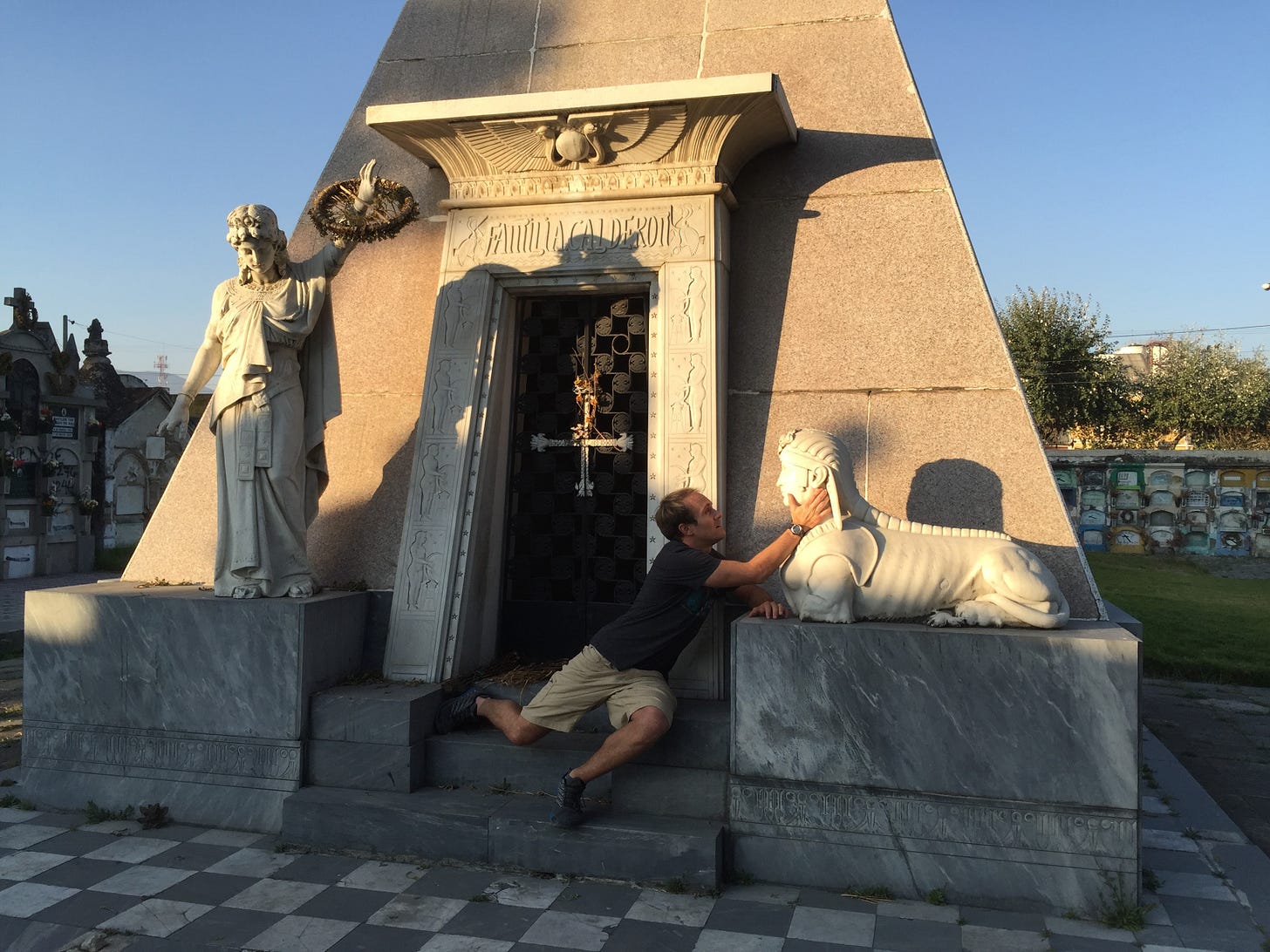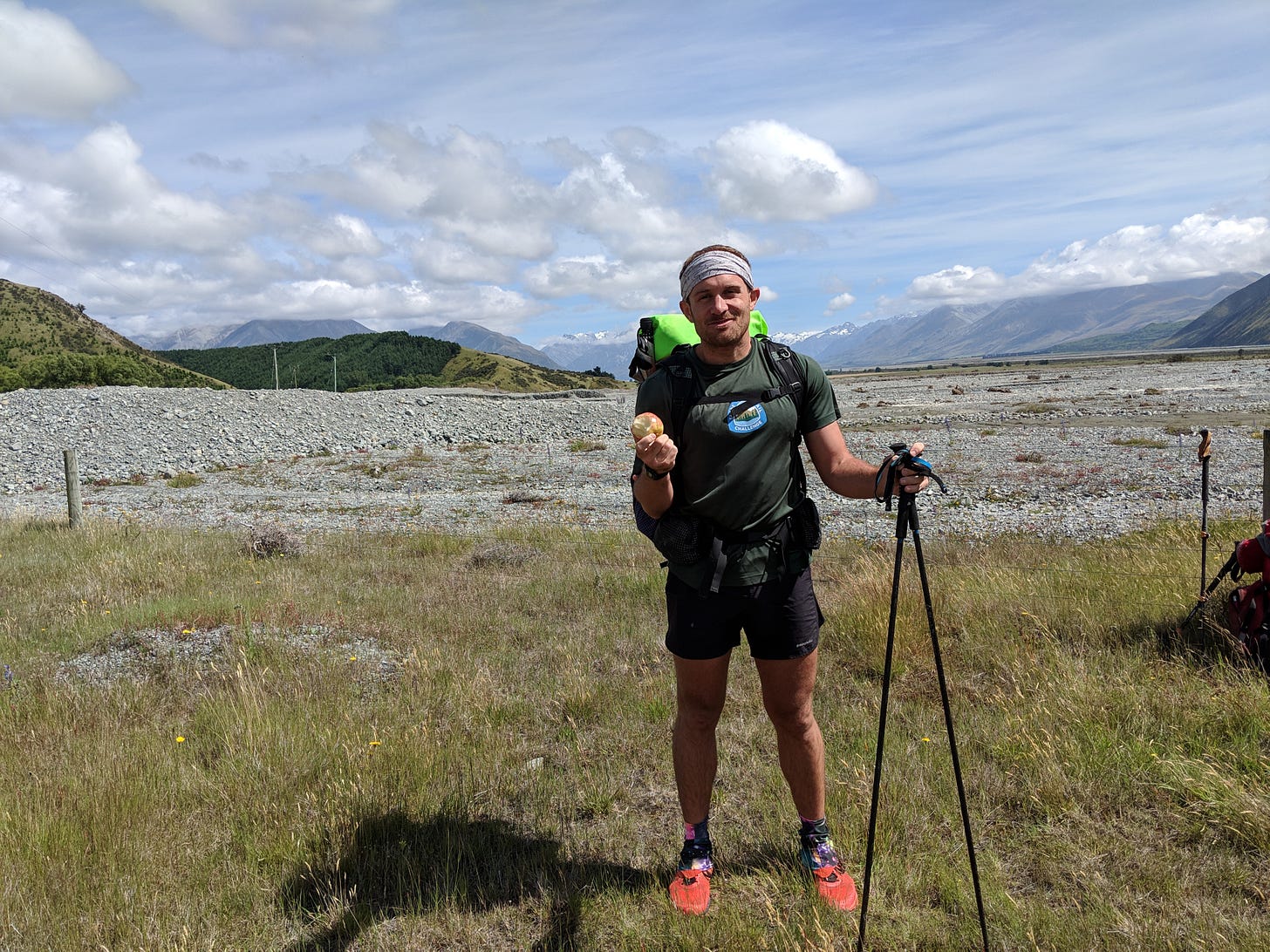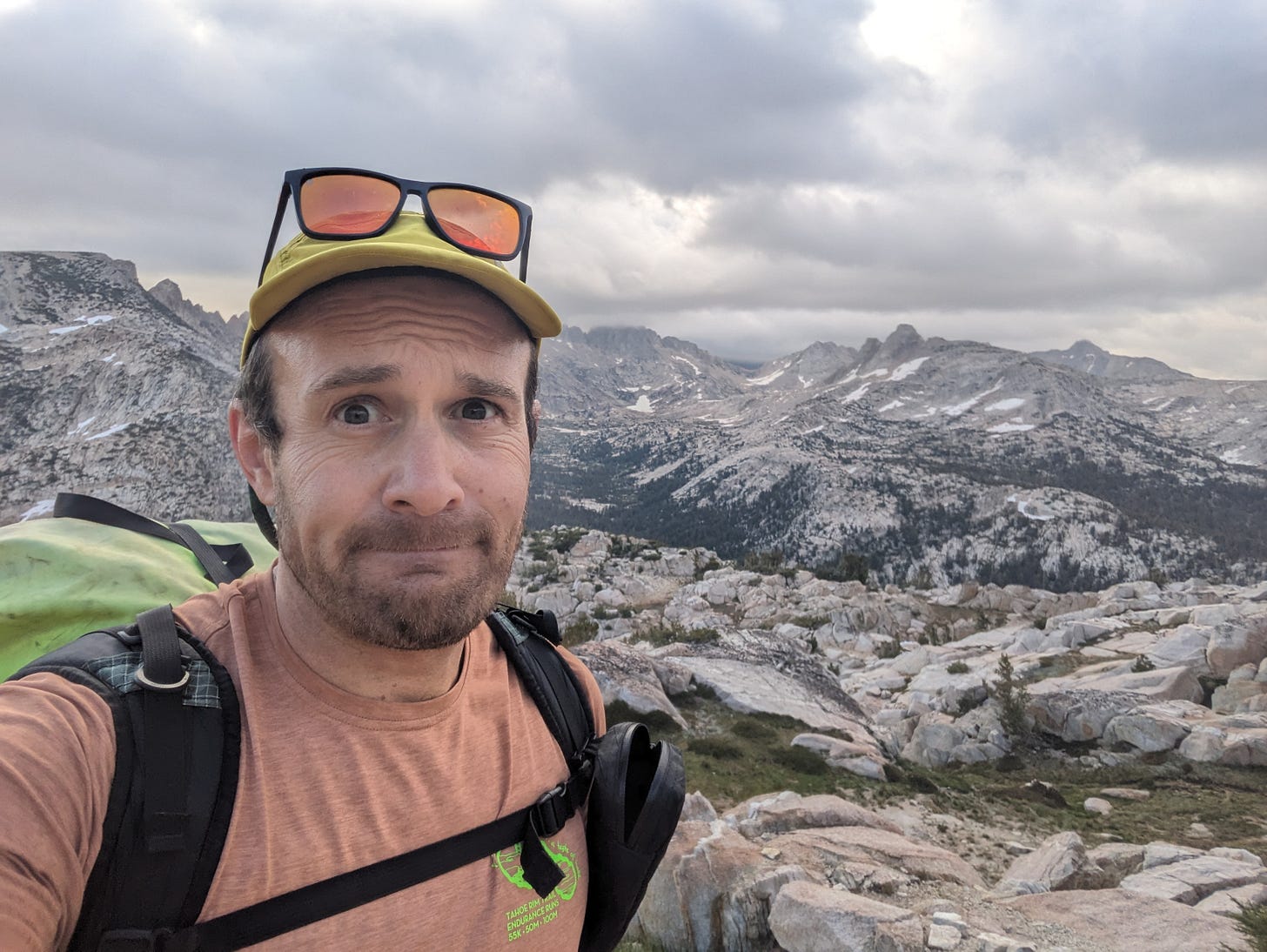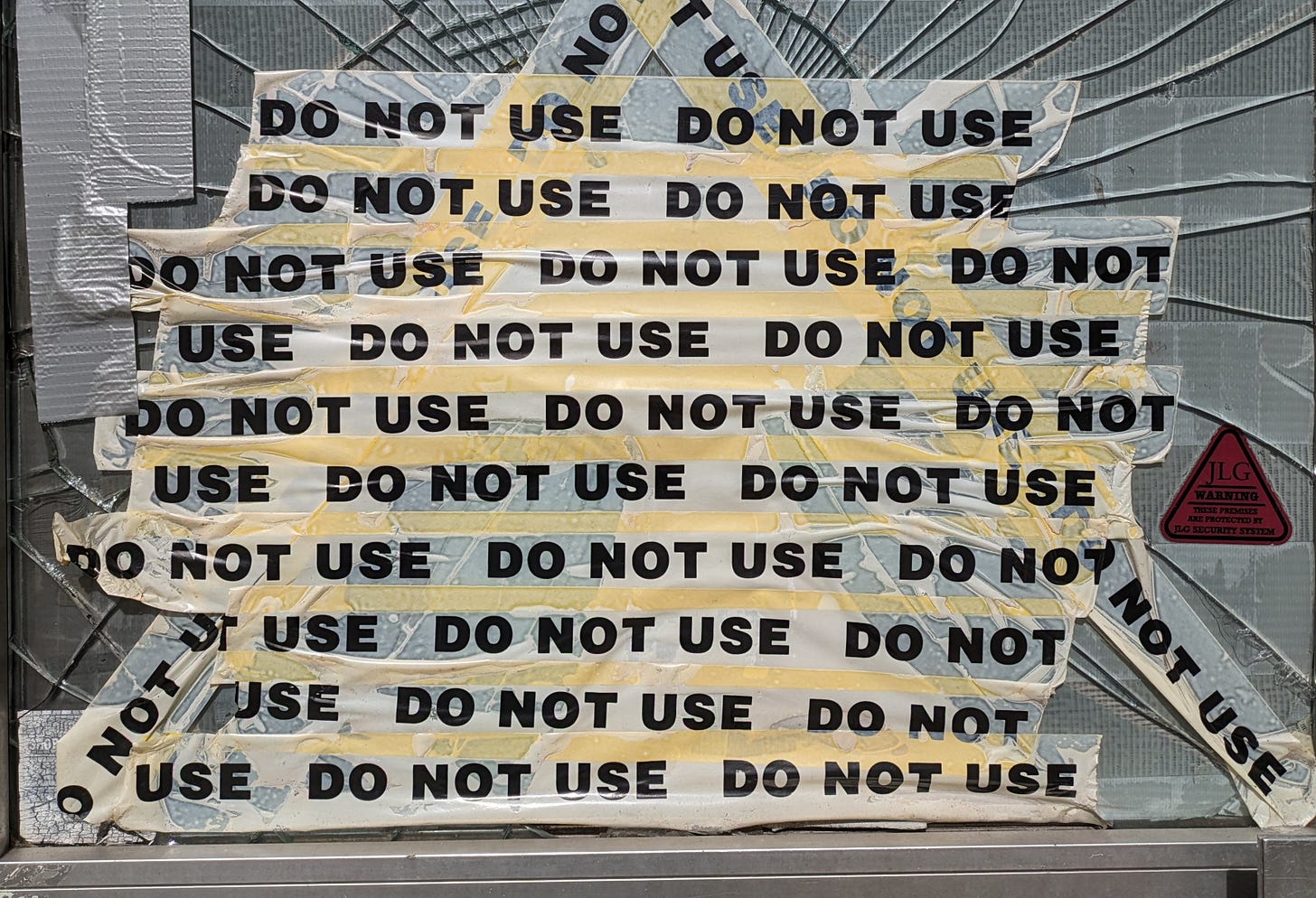Hobbled in Oaxaca
and New Zealand, and California, and London...
Christmas Day, 2015
I’m on a short run near my family’s place in northern California. Suddenly, my lower back spasms. Shooting pain steals my breath. All my body wants to do is stop, crouch, and lean forward. After a few cautious breaths, I begin running again. The piercing instability returns. I walk back to my car.
Sprawled on the couch, I wonder whether I should take my scheduled flight to Oaxaca the next evening. I’ve never had a “bad back.” I don’t know what to expect. But I also don’t want to skip this adventure, traveling overland from Mexico to Guatemala to visit a friend and brush up on Spanish. Nor do I want to convalesce at my dad’s.
(Later I will realize that, following a cross-country road-trip, I probably should not have attempted my first-ever hot yoga session. One week of poor posture + 90 minutes of heat-induced overstretching ≈ compromised lower back.)
Before heading to the airport, I’m walking to get burritos in Oakland with my friend Julie. The spasm returns with a vengeance. I stop, crouch, and catch my breath. A few minutes later, it happens again. Julie says that I look like I’m in bad shape. I am in bad shape. But I am taking that flight. I’m 33—too young for this shit.
The next day, I wake in my Oaxaca hostel and venture forth into the city. Fifteen minutes later, my back says STOP. I crouch, breathe, and hobble back, where the hostel staff kindly ask if I need another ice pack.
In the days that follow, I hobble in progressively wider circles from the hostel. Later that week, I move like a snail across the pedestrian bridge at the Guatemalan border, carrying all my luggage, praying that my back holds. On the other side, a taxi driver offers to drive me a quarter mile to the bus station. Normally, I would scoff. Today I say, Yes, please, god, yes.
Then, quite suddenly, I’m better. I’m walking through Quetzaltenango, I’m hiking up mountains, I’m running trails. I write off the entire incident as a strange, ugly fluke.
New Zealand, December 2018
Reeling from a break-up with my German girlfriend, I have flown to New Zealand to backpack some of the Te Araroa: New Zealand’s wetter and wilder version of the Pacific Crest Trail.
Stupidly and/or boldly, I am tackling some of the trail’s most challenging sections, straight out of the gate. With a tent, full rain gear, and lots of food, I’m carrying more than I typically do. The route is rugged, the days are long, and I’m pushing hard.
Lo and behold, in the second week of hiking, an old friend visits: Mr. Wiggles, a.k.a. Señor Instability. I’m hiking along, and all of the sudden—I’m hobbled.
Fortunately, I’m not far from civilization. Had it happened a few days earlier, deeper in the backcountry, a self-rescue would have proven more arduous. I hike myself slowly off the trail, taking lots of little breaks, and spend a few days recovering. You win, Te Araroa. I hitchhike to Wanaka, rent a room, hunker down, and end up writing my next book. My back fully recovers. I’m mountain biking, learning acroyoga, and dancing tango again. But now I’m curious—how do I prevent this from happening again?
A sports physiotherapist advises me to “strengthen my core.” I take up Pilates. My body loves it. I’m cured!
The Sierra Nevada, September 2023
Another multi-day road-trip followed by another high-intensity backpacking trip. Could I have seen this coming? Apparently not, because “I’m cured.”
Despite recently hiking around the Bay Area and doing a 50km mountain run, despite all of the Pilates, my body once again rebels. On day two of a solo backpacking trip in the California Sierra, I wrench my lower back while holstering my pack.
Maybe it’s the poorly inflated Thermarest. Maybe it’s the snow layer I crashed through. Maybe it’s the drive, or the elevation, or something more eternal and pernicious. I try to sleep it off, without luck. The next day, I slowly hike myself out of the woods. Again, I am lucky to be on-trail and near civilization, rather than the opposite. I don’t like how lucky I’m getting.
Another physiotherapist gives me an adjustment and some advice. You’ve got strong quads, but weak hamstrings. It all connects to your lower back. Work those hammies! And I do.
London, April 2024
I have flown from Chile to the United Kingdom. My body is unhappy. I’ve never liked sleeping on planes, and this journey is especially unpleasant.
How to recover? Dance, of course!
The next night, my friend takes me to a London fusion event. I’m dancing my booty off, leading big moves and dips, excited to be back in the fusion world after a 4-month hiatus in South America. All of a sudden, my back twists and pops.
Oh, no. No, no, no. Not dance. You can’t take dance away from me. Until this moment, I’ve never had a back issue while dancing. Now, I have. I fully recover in two days, but I am still scared.
Next month, I attend two fusion festivals. I dance for hours on end. I’m fine. Everything is fine. I’m… cured?
No, we don’t use that word anymore. I am now managing a body that I can no longer fully trust.
France, literally yesterday
Pourquoi, monde cruel, pourquoi? What have I done to upset you?
I have not road-tripped, or backpacked, or taken a red-eye, or plunged through snow, or practiced Bikram yoga. Have I not worked those hammies enough? It doesn’t matter. The back has rebelled.
Maybe, it was all the strange sleeping surfaces from the last two weeks of Swiss couchsurfing. Maybe, this means I must now sleep on a normal bed for the rest of my life. Maybe I must now purchase a $3000, custom-fit mattress. Maybe this mattress will obligate me to have a home, and take a regular job, and abandon the life I know. Maybe, this is the end.
Such dramatic thoughts sail through my head as I board the buses, trains, and plane that transport me to my next destination. I should be at “home,” resting. But I don’t have a home; I have non-refundable tickets. My home is perpetual forward motion. So forward I plunge, hobbling like Quasimodo through the stations, trusting that I’ll recover soon enough, fearing it may happen again, and remembering that all of us, one day, are hobbled. ■







Yep. It happens. We get older. Things don’t work like they used to. Muscles you didn’t know you had suddenly get angry. The little things we used to do easily now aren’t. Welcome to middle age. I hate to tell you that this will continue. No, actually it gets worse. That old saying, “you can have it all” is true, but only if followed by, “not all at once”. It seems to happen in stages. I always wondered why 65 is the age of retirement. I will be 66 in September and I don’t wonder anymore. While you lament the aging of your body, do look at the upsides too. With age comes wisdom, clarity and peace. Life is full of stages. Enjoy them as they come. Each has a purpose, and joy, as well as pain. Look for the upsides of your next segment of life. Everything you do changes you, so you won’t have the same thoughts and hence life you once wanted. Allow yourself to change, alas you have to. Maybe it will be a different adventure than you had planned, but it still will be an adventure.
I imagine you've already looked into this, but just in case I highly recommend reading "Healing Back Pain: The Mind-Body Connection" by Dr. John Sarno.
It's not necessarily age or injury that is determinant in causing this problem (even if they might both play a role). Especially if it's a condition that comes and goes so quickly, its very likely that there's a root cause in the emotional realm.
I had debilitating back pains in my late thirties and early forties when I was going through burnout (e.g. hospitalized-and-getting-MRIs kind of pain, laid out in bed for a couple of days, going to work on crutches). I thought it was due to an injury, but eventually learned that it was my body's way of sending me a message when I was stubbornly ignoring all the other ones it was sending me. Now, close to fifty, after changing my lifestyle completely, I rarely get any kind of back twinge unless I let myself get particularly stressed or overwhelmed.
Apparently, a lot of men express stress/emotional overwhelm through musculoskeletal pain (neck, shoulders, back, hips, knees), while women tend to have more internal expressions (digestive or reproductive system).